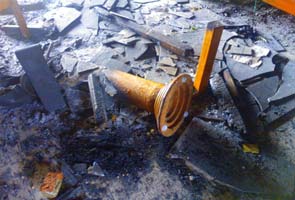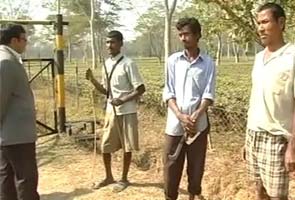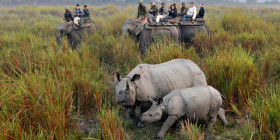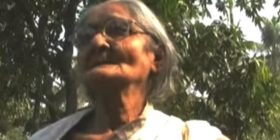Tinsukia: Among upper Assam’s many tea estates, the Kunapathar Tea Estate was known till recently mainly for its sheer size of 1,000 acres.
Then, in December, in the middle of a sunny afternoon, a mob armed with bows and arrows tore its way into the house, attacked the owners, and then set the sprawling five-bedroom home on fire.
The four security guards at the house said they were outnumbered; any sort of intervention was unfeasible.
So, Mridul Kumar Bhattacharya and his wife Reeta died in the midst of the tea estate he had set up in the 70s. The body of Mr Bhattacharya, 70, was cut into pieces.
When the police arrived, a group of 200 workers was waiting. Some had spoken to local channels, admitting to the execution. Nine of them were arrested for leading the attack.
Now, an eerie silence greets visitors at the tea estate. A lockout has been in force here since January. The 800 workers have been unemployed since then.
Large tea estates usually create their own worlds, with housing for workers, a clinic or hospital and some version of a school.
But the facilities at Kunapathar are at odds with its renowned size and fortune.
In the midst of a disorderly conglomeration of mud huts, Anita, unlike most workers, says she would like to share some details. Her husband is among the nine arrested for the Bhattacharyas’ murders. She says there are no toilets and an inadequate medical dispensary.
Of her employer’s gory end, she says, “He used to beat the workers a lot. At the smallest provocation. Even the madam used to beat workers.” She knows and accepts what her  husband has done. “I have no remorse. Yes, he was burnt to death. So what?”
husband has done. “I have no remorse. Yes, he was burnt to death. So what?”
Mr Bhattacharya had, over the years, acquired a reputation for stifling dissent. His employees belonged to one of the two major tea workers’ unions in Assam, which he allegedly tolerated as compliance with the law.
Two years ago, he was arrested from his other tea estate near Guwahati, after he allegedly shot and killed a 16-year-old boy. According to the police, the teenager was part of a group of workers who protested after Mr Bhattacharya used a stick to hit a woman who he accused of trespassing. He was released on bail two months later.
His son, Rishi Bhattacharya, who has inherited the estate, does not believe that workers killed his parents. “The local media has slandered my parents. We should find out the real reason of how some assassins came by and killed my parents and forced my workers to watch. On the day of the killing, some people came and chopped my parents and then claimed to represent the workers,” he said.
Local police sources confirmed they are investigating the role of Naxals and tea workers from adjoining gardens in the killings. They also suspect that some religious groups in the area may have incited the workers at Kunapathar.
As the police investigation snakes its way around the events of that afternoon, Boga Karamkar, who is in his 60s, has assigned his concern to what he describes as a bigger mystery. “Someone died here. Now, why are 1,000 people facing starvation and closure because of that? Something should be done to help us,” he says.






Leave a reply